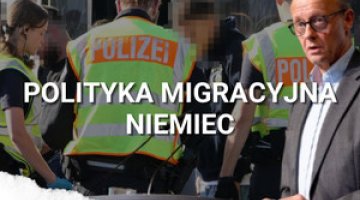Germany: the consequences of the New Year’s Eve riots
On New Year’s Eve, several German towns and cities (including Berlin, Hamburg, Frankfurt am Main, and Borna near Leipzig) saw numerous assaults on police officers and rescue workers. The officers were attacked with various items including firecrackers, rockets and starting pistols. Particularly violent incidents took place in Berlin, including in the district of Neukölln, where rescue workers were lured into ambushes laid in the vicinity of burning barricades and then attacked; in some cases the rioters attempted to ransack their vehicles. According to the Berlin police, around 40 officers and 15 firefighters were injured. A total of 145 individuals were detained in the city (the vast majority of them being young men): they represented 18 nationalities, 45 of them were German citizens (almost a quarter of whom had dual citizenship). 355 criminal and administrative proceedings have been launched, over disrupting public order, assaulting police officers and obstructing police interventions, causing serious bodily harm and starting explosions.
The riots were discussed at a meeting of the internal affairs committee of the Berlin House of Representatives (the state parliament of Berlin, which is a city-state) held on 9 January. In addition, Berlin’s mayor Franziska Giffey (SPD) intends to discuss the riots during the so-called youth violence summit which has been called for 11 January 2023. It will be attended by representatives of the Senate (the state government), city districts and non-governmental organisations. Moreover, Giffey has announced a five-point action plan involving fast-tracking law enforcement procedures, increasing the number of emergency service staff and equipment, toughening federal gun laws, allocating additional funds for youth programmes, and launching a special programme targeting residents of large housing estates in selected districts of Berlin.
The New Year’s Eve incidents have once again stoked a nationwide debate in Germany on the consequences of failing to integrate a portion of the migrants living in Germany (mainly those of Arab origin); for example the excessively lenient approach to Arab extended family structures came under criticism. According to Berlin police estimates, 13 such groups, each numbering over 10,000 individuals, operate in the city. The history of Arab family networks in Berlin dates back to the mid- 1970s, when most of their members came to Germany as refugees from Lebanon and were granted so-called tolerated residence (Duldung) which prevented them from taking up employment.
Commentary
- Recent years have seen an increase in the number of attacks on law enforcement officers: in the period between 2012 and 2022 these increased by a total of 22%, up to around 40,000 (with verbal assaults taken into account, in 2022 88,500 officers were subject to such abuse). Attacks on emergency service workers are insufficiently documented, and their statistics are often included in those relating to attacks on police officers. Before 2019, New Year’s Eve celebrations in Berlin frequently saw attacks on police officers (for instance, there were 49 such incidents in 2018/2019). Over the last two years the situation calmed down due to the introduction of pandemic restrictions which included a ban on using fireworks. Berlin is also a frequent scene of riots organised during May Day celebrations: in the German capital these are viewed as elements of folklore, and the city authorities tolerate them to an extent.
- Berlin’s recent New Year’s Eve riots were characterised by unprecedented aggressiveness on the part of the rioters and by their numerous deliberate and coordinated attempts to target emergency service workers, including by luring them into ambushes. One of the basic problems with violence against law enforcement officers involves the fact that some of the perpetrators (both those with a migrant background and members of right and left extreme groups) do not identify themselves with the German state or its representatives. However, at the same time, there is no consensus in Germany – and particularly within the ranks of Berlin’s left-wing government – on how to select and apply measures intended to boost the state’s authority, for example to increase police presence at specific hotspots in selected city districts.
- The Christian Democrats have accused the SPD of pursuing an excessively liberal integration policy, and called on them to toughen the penalties and to reveal the suspects’ ethnic backgrounds. Similar views on the matter were expressed by a portion of SPD representatives from Berlin (including from Neukölln district, where the proportion of residents with a migrant background is 48%). They have challenged the methods used so far to combat local problems, and have criticised the view that the perpetrators’ ethnic background should not be revealed. They argue that this diverts attention from the fundamental causes of conflicts, such as the cultural and religious upbringing of some of the migrants, which contrasts with democratic values. However, a minority of SPD members support this view. Federal SPD structures and the Greens tend to focus on social problems experienced by young people, and avoid emphasising the perpetrators’ ethnic background. The recent attacks in Berlin have empowered the anti-migrant AfD party, who believe that the policy pursued so far should be toughened. In this context, another important fact is that – just as in the wake of the New Year’s Eve celebrations in Cologne in 2016 (see ‘New Year’s Eve in Cologne – the end of German hospitality?’) – some of the state-controlled media have applied self-censorship and avoided revealing the perpetrators’ ethnic backgrounds in their reporting on the riots (while, for example, firefighters did mention this issue in their accounts of the events), and have decided to focus solely on the social problems present in selected Berlin districts, on increases in aggressive behaviour among young people following the pandemic, and on the ban on fireworks.
- The consequences of the recent riots have become the main topic of the ongoing campaign in Berlin ahead of the state elections (planned for 12 February), and have served as a boost to the opposition CDU party. They have accused the SPD of ignoring the most important issues in city politics for many years (the SPD has ruled Berlin since 2001), and emphasised the fact that Berlin’s law enforcement services have lost control of a portion of the capital city. Another problem for the SPD is the need to rerun the elections to the local Berlin government and (partly) the Bundestag because the polling stations, which they had supervised, had been inadequately prepared (see ‘Partial rerun of the Bundestag elections’). Despite this Andreas Geisel (SPD), who was responsible for the poor preparation of the voting process in Berlin, is serving another term in the city government. Opinion polls conducted in mid-December 2022 indicate that the SPD and the CDU can count on 21% of votes each. The SPD/Green coalition and the Left Party are supported by 20% and 12% respectively of those polled.





